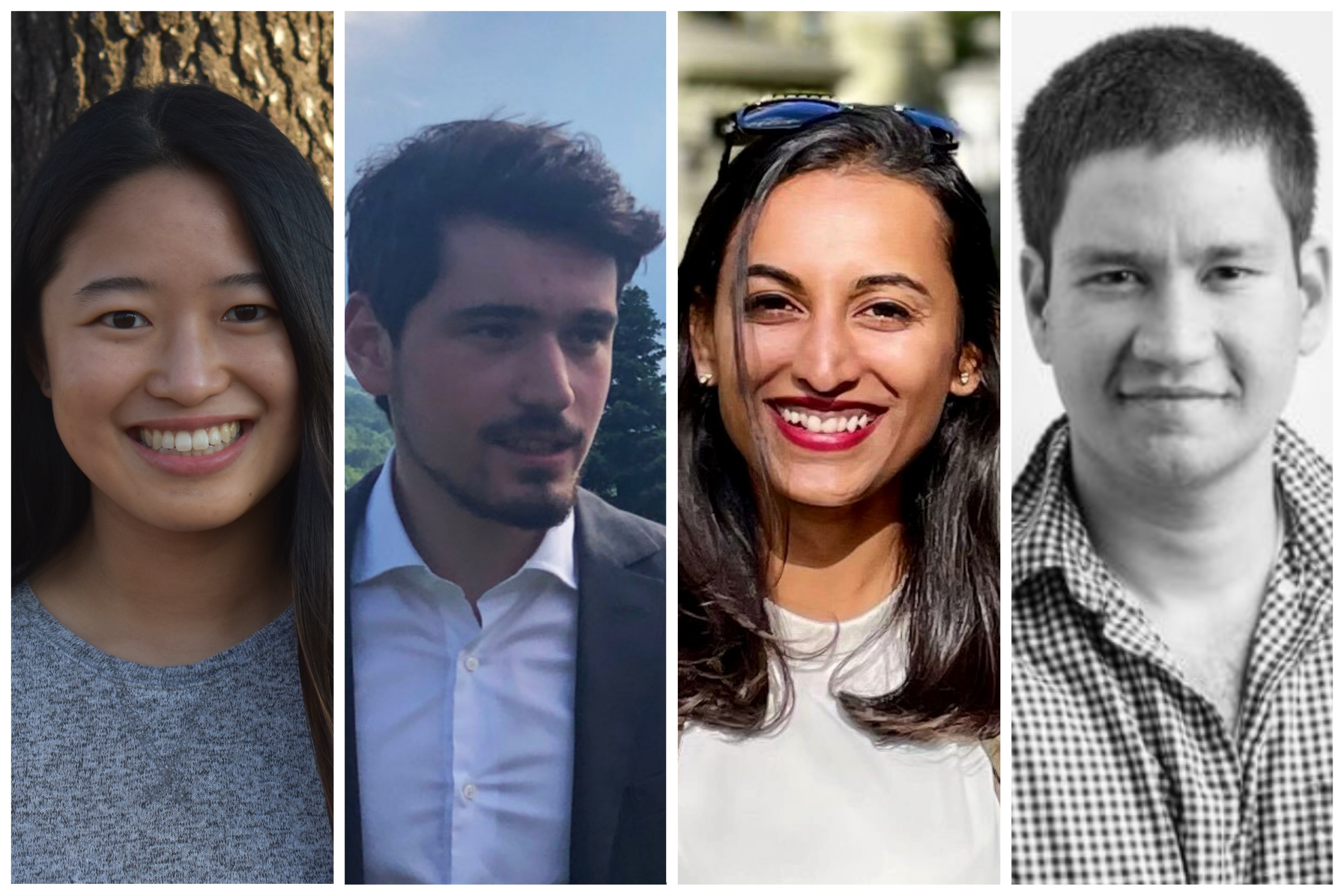
The honorees include four MIT graduate students in electrical engineering and computer science, economics, and media arts and sciences.
Jane Halpern | Department of Electrical Engineering and Computer Science
Meta, the parent organization of Facebook, Instagram, WhatsApp, and other subsidiaries, recently announced the winners of its highly competitive 2022 Meta Fellows program. The incoming group of fellows includes four MIT graduate students from three programs around the Institute.
Jaume Vives i Bastida is a PhD candidate in the Department of Economics, advised by Alberto Abadie, Anna Mikusheva, and Tobias Salz. His goal as a researcher is to design econometric and machine-learning tools that improve policymaking, while being transparent and robust to different modeling assumptions. In particular, his research has focused on the properties of shrinkage estimators and on extensions to the synthetic control method, a popular tool used by applied researchers and policymakers. On the practical side, Bastida applies these methods to understand complex interactions in the digital economy, such as in online platforms, in which data-driven decision-making plays a key role. He has had the chance to put these methods to work in real-life situations at Google and Quantco.
Prior to joining MIT, Bastida obtained a BS in econometrics and mathematical economics from the London School of Economics and Political Science, was an exchange student at the University of California at Berkeley, and worked as a research professional at the University of Chicago under Eric Budish. In his spare time, Bastida enjoys playing squash and chess, and going back to his hometown of Barcelona, where he says the best food in the world can be found.
Lucy Chai is a graduate student in electrical engineering and computer science (EECS) at the Computer Science and Artificial Intelligence Laboratory (CSAIL), advised by Phillip Isola. Her current research focuses upon computer vision and image synthesis. In particular, she is interested in learning from data collections to generate augmented forms of images. The results of this can enable interactive image editing that combines user input with learned image priors and be applied to investigate downstream visual analysis tasks. She has spent two summers at Adobe Research working with Richard Zhang, Jun-Yan Zhu, Michael Gharbi, and Eli Shechtman, and frequently collaborates with Ser-Nam Lim at Facebook.
Prior to joining MIT, Chai attended Churchill College at Cambridge University, where she earned her MPhil in machine learning studying uncertainty and interpretability in Bayesian neural networks. Chai earned her undergraduate degree at the University of Pennsylvania in computer science and bioengineering, where she worked with Danielle S. Bassett in computational neuroscience, focusing on modeling neural processes as dynamic networked systems. Among other honors, Chai has been awarded a NSF Graduate Research Fellowship and Adobe Research Fellowship.
Dishita Turakhia is a fourth-year PhD candidate in the Human-Computer Interaction Engineering Group at CSAIL, where she is advised by Professor Stefanie Mueller. Her current research lies at the intersection of system design and learning sciences, with a particular focus on augmented and virtual reality applications for autodidactic learning of skills. Her projects enable autodidactic skill learning of motor skills, fabrication skills, and maker skills. Turakhia’s project on the adaptive learning of motor skills was covered featured on MIT News.
Before starting her PhD, Turakhia earned a dual master’s from MIT in EECS and computational design (SMArchS) in addition to her master’s in design technology (EmTech, AA). Prior to returning to academia, she worked as an architect and computational designer for over five years in Mumbai, London, Singapore, and Bern. Turakhia earned her bachelor’s in architecture from KRVIA (Mumbai University).
Praneeth Vepakomma is a PhD student in the MIT Program in Media Arts and Sciences (Media Lab), advised by Ramesh Raskar. Vepakomma’s research focuses on distributed computation in statistics and machine learning under constraints of privacy, communication, and efficiency. Foundationally inspired by nonasymptotic statistics, randomized algorithms, combinatorics, and systems design, his research has applications in private independence testing and private k-sample testing in statistics; bridging privacy with social choice theory; private mechanisms for training and inference in machine learning; privately estimating nonlinear measures of statistical dependence between multiple parties; and split learning.
Among other honors, Vepakomma has been selected as a Social and Ethical Responsibilities of Computing Scholar by MIT’s Schwarzman College of Computing. His paper “FedML: A research library and benchmark for federated machine learning” won a Baidu Best Paper Award at NeurIPS 2020-SpicyFL, and “NoPeek-Infer: Preventing face reconstruction attacks in distributed inference after on-premises training” won the Mukh Best Paper Award at IEEE FG-2021. He was interviewed in the book “Data Scientist: The Definitive Guide to Becoming a Data Scientist” and his work on split learning has been featured in MIT Technology Review. Vepakomma was previously a scientist at Amazon, Motorola Solutions, and at various startups; additionally, he has interned at Apple, Corning, and TripleBlind. He holds an MS in mathematical and applied statistics from Rutgers University at New Brunswick.
